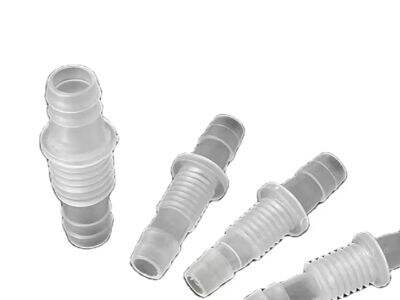Are you curious about elbows? Elbows are not just our body parts; they play an important role in plumbing and pipe project that we see every day. Though you do not think much about them, elbows are essential in connecting pipes so that water or gas can flow through smoothly. In this post, we will explore the different elbow types and applications in plumbing and industry.
What Are Elbows?
The name elbow literally means the bend in your arm! Pipe elbows bend differently much like how our elbow can bend differently. 45 Elbows And 90 Elbows Are The Two Main Sorts Of Elbows. A 45-degree elbow that has a slight curve in it, to produce an ideal turn for the cone of pipe. A 90-degree elbow, however, is a tighter, more direct bend than the other common variety thus enabling a fast turn. Perusing the elbow shape is very important as it manages the measure of water or gas stream in the pipelines. Which is why it really pays to choose the right elbow for the job.
How Elbows Work
An elbow fitting connects the two pipes with a bend joining them. The elbows have two ends on each elbow. These openings feature threads or a location where they can be spot welded to other pipes. The elbow elbow determines the size. Elbow: The elbow size is very vital as it helps to pass the water or gas without any blockage. An elbow that is too small can slow flow or create a pressure rise — not good.
Elbows in Plumbing
Elbows are generally used in plumbing to connect pipe pieces and change the direction of flow. Copper elbows and PVC elbows are the two most common types of plumbing elbow. Copper elbows exhibit strength and high durability. They are resistant to high heat and withstand pressure as well, so they are widely used in many plumbing projects. PVC elbows, on the other hand are usually used for water pipes because they can never rust and also it is much light weight material so working with it becomes easier. Plumbers use elbows to angle pipes, navigate corners and fit pipes into small areas with less clearance.
Elbows in Industry
Elbows play a very crucial role in factories and industries as well. You will find them connecting pipes at oil and gas plants, at chemical factories, or water treatment facilities. The elbows utilized for these types of joints are composed of robust metallic alloys such as stainless steel, carbon steel, and aluminum alloy. They are made from durable materials able to withstand extreme heat and pressure. In situations where the fittings need to be sealed for leakage-proof joints, special variations of elbows is utilized such as a welded elbow and flanged elbow check. A tight, leak-free seal is necessary for safety and efficiency.
Choosing the Right Elbow
Selecting the best elbow to use in your own project can be hard, if you are not plumbing or pipe fitting savvy. You have to consider a few things about the elbow, including the size, shape, and what material should be used. Apart from that, it is also important to know which type of fluid or gas you are passing through the pipes. If you are transporting hot water, your pipe system needs to be able to handle the heat. You should also examine the operating pressure and temperature conditions around the pipes. In case you are not sure which elbow to go with it is a good thing to consult with a plumbing or piping specialist. They also will be able to guide you in order for you wolle be using the right elbow for your exact project requirements.

 EN
EN








































